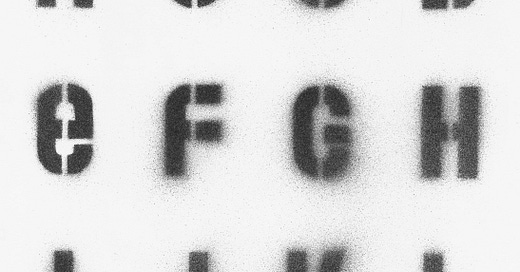I get asked this a lot.
It’s probably towards the top end of my FAQs, along with ‘What happens at the end of deadkidsongs?’ and ‘Would you advise I do a Creative Writing MA?’
(No, I’m not going to say what happens at the end of deadkidsongs.)
There are a number of reasons why I decided to write my books of fiction (once I knew there was going to be at least one book) in something like alphabetical order.
Here are thirteen of them.
Firstly, autobiographically, at the time I wrote A (is for Adventures in Capitalism), I was working in a bookshop – Fielders in Wimbledon – and I spent a lot of time rearranging the books on the shelves. Whenever I did this with the Fiction section, the question arose of whether to put an author’s titles in alphabetical or chronological order. (I’m sure you’ve had the same debate with your shelves at home.) There were a few authors whose books would be the same either way, mainly because they’d only had two or three books out, and they’d happened unconsciously to write them with alphabetical titles. (One of these was Kazuo Ishiguro: A Pale View of Hills, An Artist of the Floating World, The Remains of the Day, and then, after I’d left the bookshop, The Unconsoled, When We Were Orphans.) I liked the idea of being convenient for booksellers, and for readers in general. But mainly for fellow booksellers.
This, of course, leaves out mention of –
Secondly, Sue Grafton, the American writer, who pursued her own fictional alphabet from 1982’s “A” is for Alibi. She was, obviously, a source for the idea. We stocked her books in Fielders. Sue reached “Y” is for Yesterday. But she died without completing “Z” is for Zero. (I’m sure over the years she got asked the Z question even more than I do.) According to wikipedia, ‘Her daughter said Grafton would never allow a ghostwriter to write in her name and “as far as we in the family are concerned, the alphabet now ends at Y”’. Thank you and bless you, Sue.
Thirdly, there is no writerly equivalent for the convenient opus numbers that composers have. By putting my works — published and unpublished — in alphabetical order, I made up my own alternative. For the first twenty-six, at least. By now, with side quests into non-fiction and memoir, and with A Writer’s Diary looping back to A, things are more complicated.
Fourthly, I would like (ideally, megalomaniacally) people to read all my books, to read them in order, and to read them in relation to one another. They exist — they do exist — as a series, although not in the most obvious senses. Each book reacts to the previous one and prepares the way for the next. There are further patterns within the chronological/alphabetical ordering of the books. As time has gone on, these have become clearer. Vowels are allotted to short stories, for example. O never happened. This is my slowly accumulating, haphazard, by default, Comédie Humaine.
Fifthly, You gotta get a gimmick, if you wanna get applause.
Sixthly, yes, I am slightly weird.
Seventhly, it’s pretentious, but in an interesting way.
Eighthly, it is a way of structuring my future. I know at least one thing about the book I am going to be writing in 2026, even if that thing is only the first letter of the title. Other writers are without this clue. I don’t know how they go on.
Ninthly, it is a handy mnemonic — helping people (including me) remember what I have written and in what order. If only I could have managed to do one book a year, beginning in 2001. Then the dates would have been easy to remember, as well.
Tenthly the alphabet is the simplest form of our language. The novel, you could argue, is the most complex. In a way, I want my writing to go from micro- to macro-, covering as much as possible of the ground in between.
Eleventhly, if I die, people will be able to speculate. ‘But just imagine what he would have done with X.’
Twelfthly, I’m a Francophile. The world of the English novel isn’t game-playing or formally sophisticated enough for me. I admire the OULIPO writers, but want to make up my own forms. This is one.
Thirteenthly, I reserve the right to think of as many more explanations as I want, and to backdate them to the inception of the series.
And in answer to the Z question: ‘What are you going to do when you exhaust the alphabet?’ I can only say, ‘I will be glad to live that long, and I have some ideas already.’
Fingers crossed.
(Photo by dezkate, Freeimages.com.)




Sue Grafton died? Oh, that makes me sad. After my BA in English Literature I exclusively read crime for about three years (specifically female crime writers) and her work figured. I gave up on her alphabet well before Y - not a reflection of her books, only of my reading fads. I didn’t know about your alphabet until today - am woefully out of order (in all senses, I suppose) as a result.